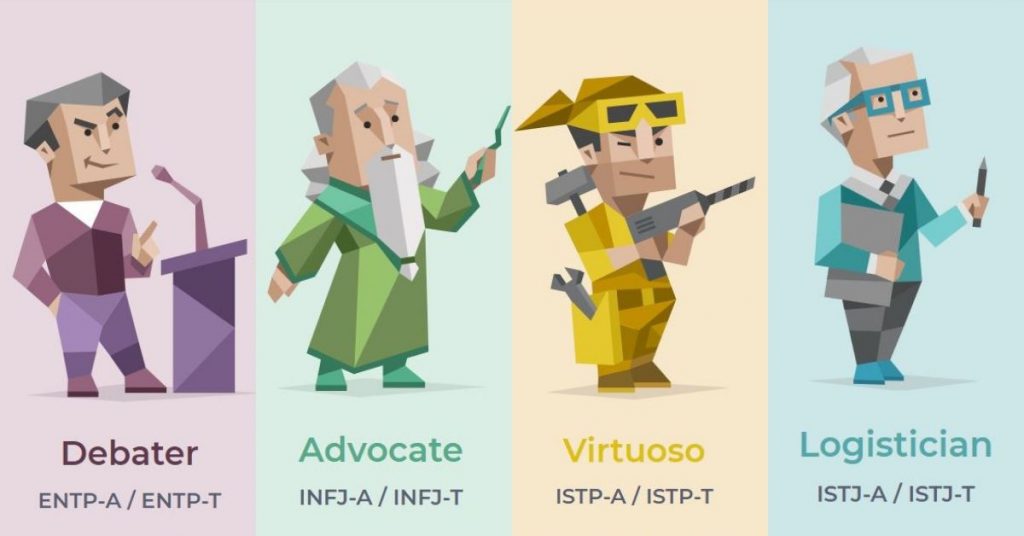Personality tests are taking over the world including our workplaces today. It’s an interesting subject and a good conversation starter for many.
We have an abundance of personality tests we can access, like the Myers-Briggs Type Indicator (MBTI), 5 Love Languages, the Enneagram Test, and more.
The MBTI is arguably the most popular personality test there is out there today, especially since you can check your personality for free.
As someone who’s taken a lot of personality tests, including the ones mentioned above, I believe they have some truth to them and help with self-reflection.
However, what I don’t get is why some bosses take these tests seriously, to the extent that they would pay for it and believe that it would help them build their ideal workforce.
Taking the fun out of personality tests
In this article written by Colossus Media Group (CMG), they highlighted that more than 3.5 million assessments are administered each year and nearly 90% of Fortune 100 companies use the MBTI test in the hiring process or as a team-building exercise.
But here’s the thing, even the MBTI foundation spoke out about how unethical it is for organisations to use their assessment for hiring decisions.
“The MBTI assessment is designed to be descriptive, not predictive. Organisations that wrongly use the MBTI assessment for hiring decisions are confusing preference with skill, and are doing themselves a disservice in their hiring process by screening out potentially qualified applicants,” they stressed.
To begin with, the MBTI is meant to help someone identify the way they function, like how they socialise, analyse, gauge situations and solve problems.
It doesn’t tell you how well someone does all those things, it just tells you how they do it. So, to assess a potential employee based on all those things for a hiring decision makes no sense.
Personality isn’t something one can change about themselves, unlike behaviour and attitude which matters more in work.
A professional employer doesn’t discriminate
Take for instance, I’m an ENFP. If you’re unfamiliar with MBTI, that means I’m (E)xtroverted, i(N)tuitive, (F)eeling and (P)erceiving.
If my potential employer doesn’t want to hire me as a writer because of all those things, wouldn’t it be ridiculous?
What does being extroverted have to do with how well I write? A job is a job at the end of the day, and my social tendencies have absolutely nothing to do with how skilled I am at it.
The same goes for my intuition, feeling and perceiving tendencies—how would all those things even play into my work performance?
Also, if an employer places a lot of emphasis on hiring based on MBTI, they most likely already have their favourites among those 16 personalities. This could point to how inflexible an employer is.
There’s no shortcut to good relationships

The article by CMG that I brought up earlier listed out several benefits of MBTI in a workplace which were:
- Eliminating conflict,
- Improving communication,
- Improving teamwork,
- Playing to strengths,
- Encouraging self-reflection.
While the last two have sound arguments to them, it’s the first three that I disagree with about how the MBTI adds to a workplace.
The thing with having good relationships with your colleagues is that there’s no shortcut or handbook. It takes time to get to know and understand a person better.
The MBTI may give you insights as to how your colleagues function, but it in no way tells you what your colleagues really value in a working relationship and how to work together with them.
When a person takes a personality test, most of the time they would be answering the questions with respect to how they’re like in their personal life.
Someone’s MBTI might be a reflection of how they function in their personal life, rather than how they function in their work life, which can mislead you if you rely too much on it to gauge your colleague better.
Is the MBTI really good for nothing then?
No, it’s not. And this is coming from someone who actively reads MBTIs and is very invested in all things related to it.
I do think that knowing your MBTI can help you play to your strengths and encourage self-reflection, because it helps organise your functioning as a person in 4 different boxes and make sense of them.
However, employers who make this a crutch for hiring decisions and team-building activities are really believing in a shortcut that doesn’t exist.
Moreover, building your dream team based on MBTIs limits yourself from accessing a pool of potential talents who may be better skilled or experienced, but simply don’t suit your preference in terms of personality.
Skills are trainable and experience can be gained, of course, but it’d be safe to say that these are extremely important to employers based on job listings.
For the most part, I think all these tests can only go as far as identifying someone’s strengths and helping them self-reflect.
But even strengths change over time as you gain more work experience and grow as an employee in a company.
Wanting to understand someone better through their MBTI is perfectly valid, but forming preconceived notions about their work style and ethic based on it may leave you disappointed later.
At the end of the day, communication is key to getting to know someone better at work, just like it is for any other relationship.
- You can learn more about the MBTI test here.
- You can read about more opinion pieces we’ve written about here.
Featured Image Credit: 16Personalities














